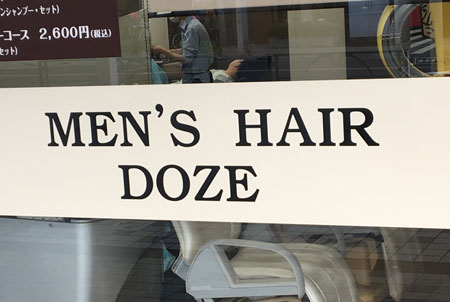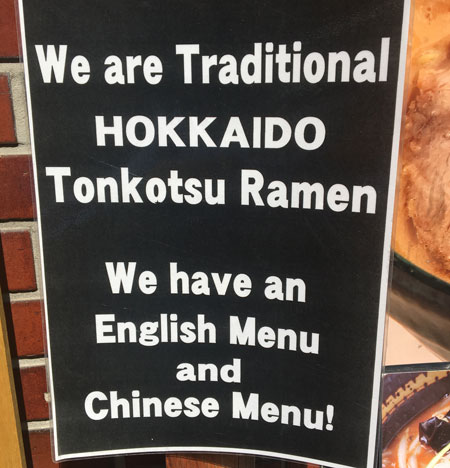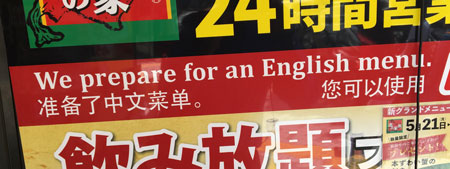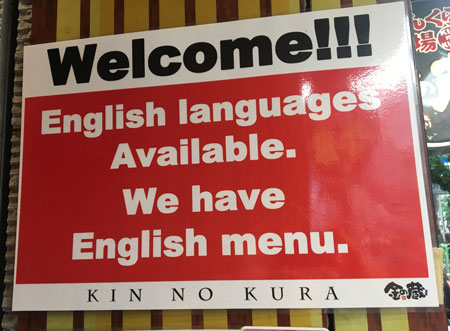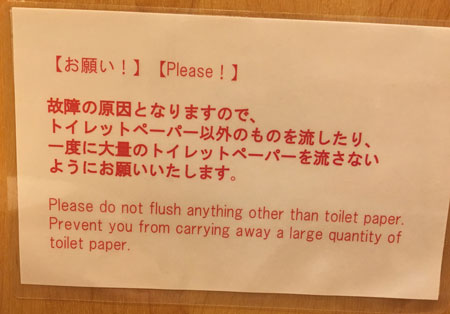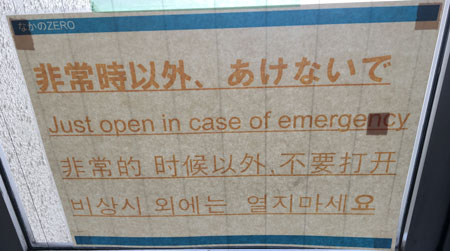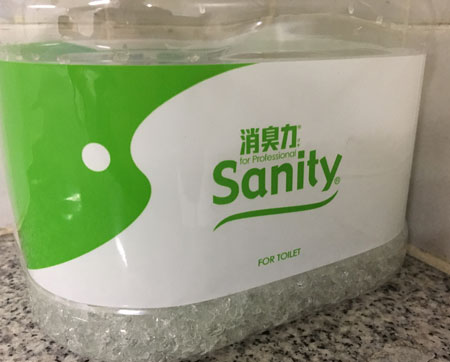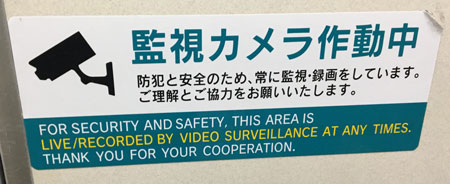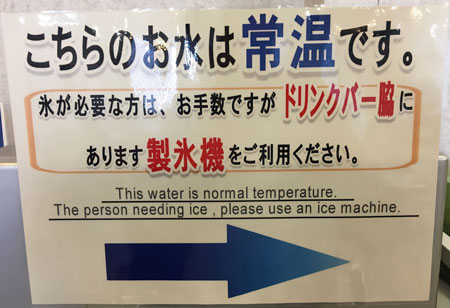
X This water is normal temperature. The person needing ice, please use an ice machine.
Tim says:
What temperature is “normal”? Are there temperatures that aren’t normal? What this sign means to say is that the water is room temperature.
“The person needing ice?” Only one person needs ice? I assume that many people will want ice! In America, the sign would probably address the reader directly with “you.”
Also, if you say “please use an ice machine”, it tells us that you don’t know where any ice machines are located. (Or, it could mean that there is more than one ice machine available.) But from reading the Japanese on this sign, we can see that there is an ice machine in the same room. Therefore, this sign should use “the” before “ice machine.”
O This water is room temperature. If you need ice, please use the ice machine.
周囲にある英語を見て、果たしてそれが正しい英語なのだろうかと感じる英語はありますか?「あの英語は絶対に間違っている」という英語の表記はありますか?看板の写真を撮って、Machigai.comに送りましょう!とんでもない英語だったら、このコーナーで出します!
